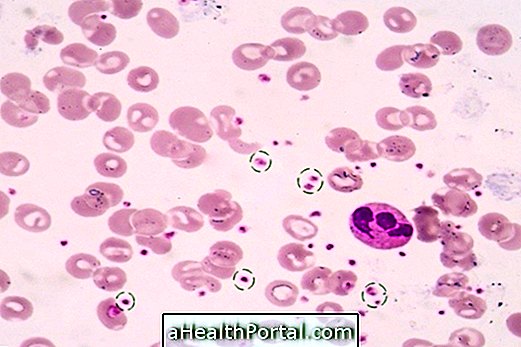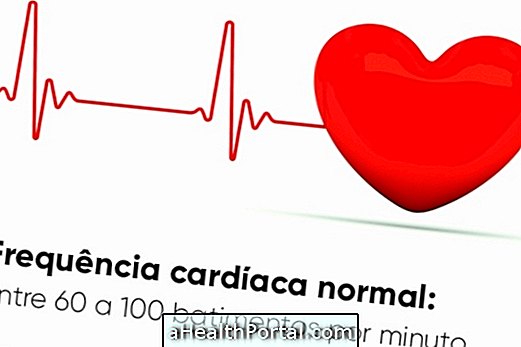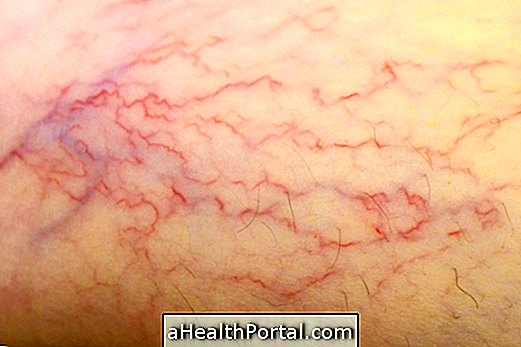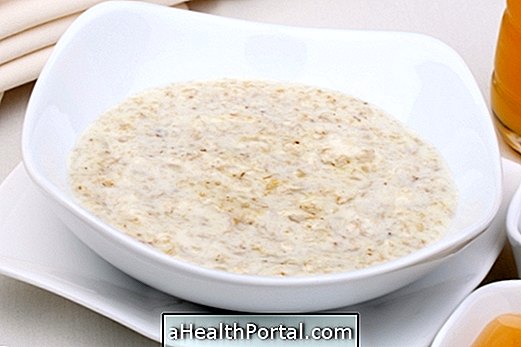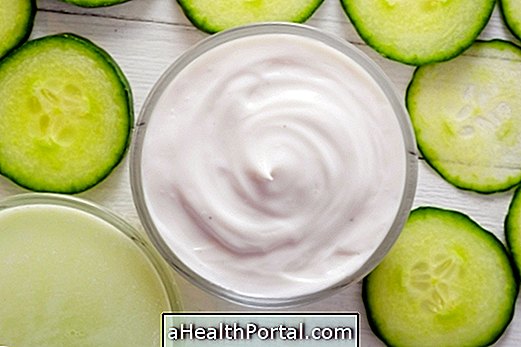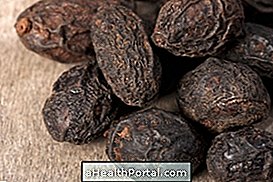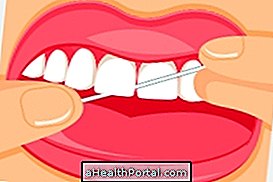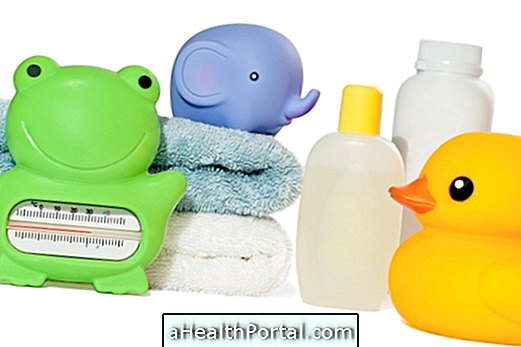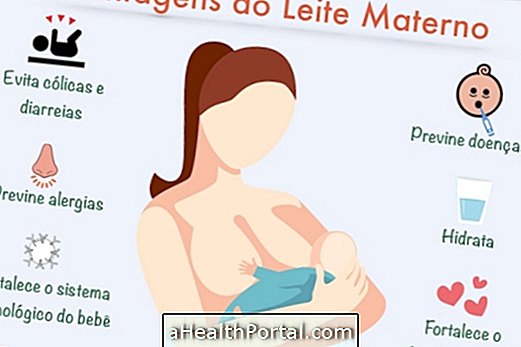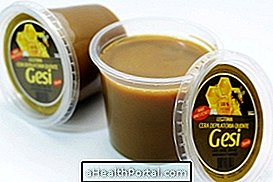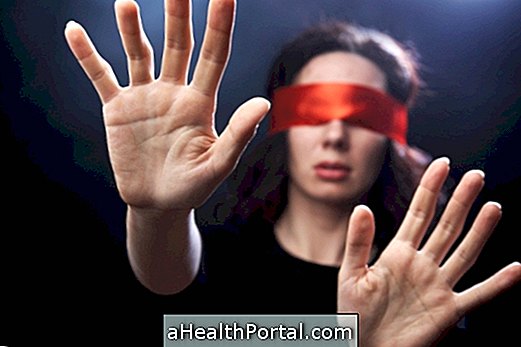The main way to prevent yellow fever infection is through the vaccine, available at health clinics or in immunization clinics. In addition, it is also necessary to avoid mosquito bites from transmitting, and care should be taken to eliminate any source of standing water where mosquitoes can multiply, use repellents, mosquito nets and long clothing whenever they are in danger zones.
The yellow fever infection happens when a person who has never had the disease or who has not taken the vaccine is bitten by an infected mosquito, and it should be remembered that a person does not transmit the infection directly to another person. Learn to identify these and other symptoms of yellow fever.
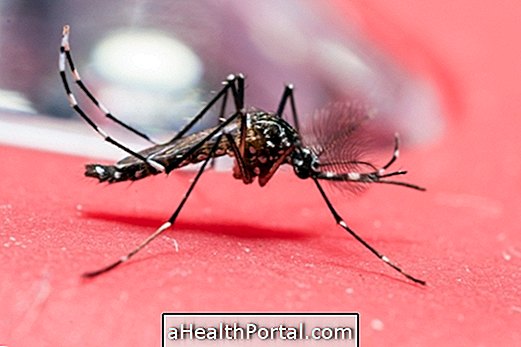
1. Taking the vaccine
The yellow fever vaccine is part of the basic vaccination schedule in Brazil, and it is indicated for children from 9 months of age, adolescents and adults living in regions classified as areas at risk for infection, or when it will be carried out national or international travel to places where there is a risk of transmitting the disease or where there is an obligation to prove vaccination.
- When to vaccinate : The health ministry currently recommends that only 1 dose of the vaccine be taken at 9 months of age, whether you are a resident or a traveler to recommended areas. For travelers who have never been vaccinated, the dose must be taken 10 days before the trip. In Brazil, the risk areas include all the states of the North and Midwest, as well as Minas Gerais, Maranhão and some municipalities in the states of Piauí, Bahia, São Paulo, Paraná, Santa Catarina and Rio Grande do Sul.
- Who should not take : people with a history of anaphylactic reaction following ingestion of chicken eggs or components of the vaccine, immune-reducing diseases such as cancer, diabetes, AIDS, or the use of immunosuppressive, chemotherapeutic or radiotherapeutic drugs. Pregnant and breastfeeding mothers should not be vaccinated, except under medical indication. Although it is not contraindicated in the elderly, it is known that they may be more susceptible to the side effects of the vaccine, so talk to your doctor to assess the risks and benefits.
The yellow fever vaccine is available free of charge by SUS at health clinics, and can also be found at immunization clinics. Learn more about the indications and how doses of the yellow fever vaccine are given.
2. Use repellents
The use of repellents is important to prevent mosquito bites and avoid infection with yellow fever and other diseases such as dengue and Zika, especially when living in regions with many mosquitoes. The main transmitting mosquitoes are from the Haemagogus species in the countryside and Aedes aegypti in the urban environment, and they can acquire the virus by cutting people or animals, such as monkeys, that are infected.
Repellents can be purchased at major pharmacies or supermarkets, are available in forms of cream, lotions, spray, stickers and even bracelets, and some recommended are those containing icaridina or DEET, for example.
In addition, there are forms of natural repellents such as citronella oils, copaiba or andiroba, or environmental perfumers like citronella candles and potted plants such as mint, clove or rosemary as they contain strong odors that are capable of keep mosquitoes away from home. Learn some of the natural repellent options to keep mosquitoes away.
3. Fighting mosquito outbreaks
For the prevention of yellow fever, it is essential to avoid infected mosquito bites, and this can be achieved by reducing their proliferation, by eliminating pockets of clean water standing in water tanks, cans, plant pots and tires, as these are ideal environments for the mosquito female to lay their eggs.
During the epidemic of yellow fever or other mosquito-borne diseases, it is also recommended that insecticide be applied through "smoke" as a way to reduce the insect population.

4. Invest in mosquito nets and screens
Using thin mesh bed nets around the bed, as well as placing screens on doors and windows, are ways to avoid mosquito contact with the body, being important measures especially for environments with people most vulnerable to bites, such as the elderly or children.
5. Cover yourself
To increase protection levels, it is recommended to wear long clothing such as pants or sleeved shirts during epidemics, especially when going to tropical forests or open places at mosquito circulation times.
6. Keep the yard clean
Keeping land and yards close to the house clean, removing debris, gravel and debris, and pruning trees and plants are recommended actions to reduce humidity and outbreaks that facilitate mosquito breeding.
What to do if you suspect yellow fever
In case of suspected yellow fever, it is important to go to the medical service at the health clinic or emergency room, where the doctor can make the necessary evaluations to confirm the suspicion or identify other diseases that may have similar symptoms, such as dengue, lesptospirosis or malaria, for example.
Tests may also be needed to identify the virus or check changes in the blood count, liver enzymes, coagulation tests and urinalysis, among others. There is no specific treatment for yellow fever, and rest, fluid replacement, such as water and juice, and remedies to relieve symptoms such as analgesics, antipyretics and vomiting are recommended.
In more severe cases, such as people with bleeding or involvement of the liver or kidneys, hospitalization or, in some cases, ICU may be necessary to control complications and reduce the risk of death. Learn more about treatment for yellow fever.

